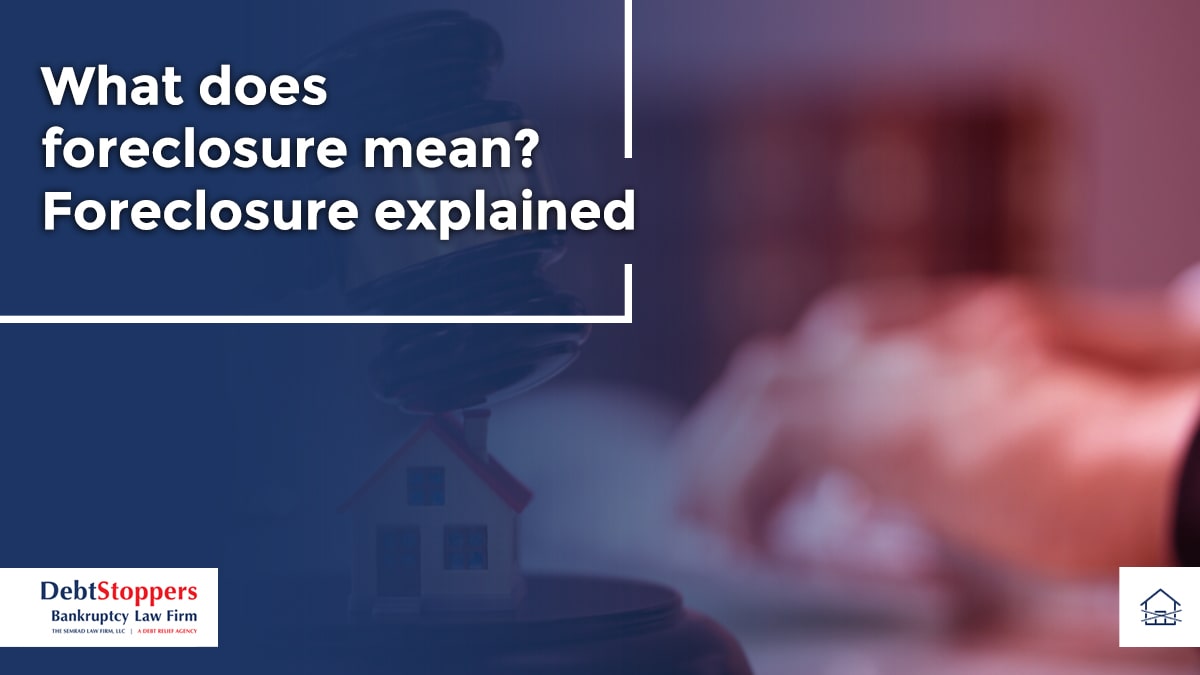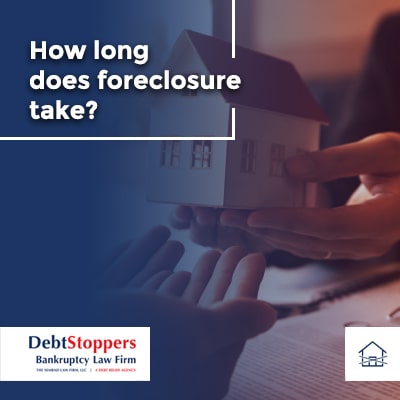What does foreclosure mean? Foreclosure explained

Foreclosure is a legal process in which a lender attempts to recover the balance of a loan from a borrower who is not making payments. This is typically done by forcing the sale of the asset used as collateral for the loan, often a house or property. Foreclosure usually occurs after the borrower has missed several payments and has been given notice of default.
How do you define foreclosure?
A simple definition of foreclosure is the legal process by which a lender takes control of a property from a borrower who has defaulted on their mortgage payments, often resulting in the sale of the property to recover the owed debt.
What is pre-foreclosure?
Pre-foreclosure is the stage in the foreclosure process that occurs after a borrower has defaulted on mortgage payments but before the property is formally foreclosed upon and sold at auction. During this period, the lender has notified the borrower of their default status and the potential for foreclosure, but the borrower still has the opportunity to take actions to avoid foreclosure, such as paying off the debt, modifying the loan, selling the property for less than the amount owed (Short Sale), or voluntarily transferring ownership of the property to the lender to avoid the foreclosure process (Deed in Lieu of Foreclosure).

How long does foreclosure take?
Generally, the entire foreclosure process typically takes about six months to a year, but it can take longer in states with judicial foreclosure or if the borrower contests the process.
How to stop foreclosure?
To stop a foreclosure, you will need to take several proactive steps to address the situation before it progresses too far. Some strategies to stop foreclosure include communicating with your lender, seeking legal advice, exploring financial assistance, refinancing or modifying your loan, selling the property, filing bankruptcy, and applying for a Deed in Lieu of Foreclosure.
Taking the following steps as soon as possible can increase your chances of stopping foreclosure and keeping your home.
Communication is key
Maintain open communication with your lender to discuss your situation and explore possible solutions.
Contact a foreclosure attorney
Seek legal advice from a professional specializing in foreclosure to understand your rights and options.
Seek financial assistance:
Look for financial aid or loan modification programs that can help you manage or restructure your mortgage payments.
Consider filing for bankruptcy
Filing for bankruptcy can provide temporary relief from foreclosure and offer a chance to reorganize your debts.
When is it too late to stop foreclosure in Texas?
In Texas, the foreclosure process moves quickly, so it's important to act promptly if you're facing foreclosure. The critical points in the process include:
-
Notice of Default and Intent to Accelerate - this is typically sent after you miss three mortgage payments. You usually have 20 days from the date of this notice to bring your loan current and avoid foreclosure.
-
Notice of Sale - if you do not cure the default within the 20 days, the lender will send a Notice of Sale. This notice must be sent at least 21 days before the scheduled foreclosure sale and must be filed with the county clerk and posted at the courthouse.
-
Foreclosure Sale - in Texas, foreclosure sales are conducted on the first Tuesday of each month. If you have not taken action to stop the foreclosure before this sale date, your property will be sold at auction.
Once the foreclosure sale has occurred, it is generally too late to stop the foreclosure. However, up until the date of the sale, you may have options, including reinstating the loan, loan modification, short sale, deed in lieu of foreclosure, and bankruptcy.
It is imperative to take action as soon as you receive any notices from your lender to maximize your chances of stopping foreclosure. Consulting with a foreclosure attorney can help you understand your options and take appropriate action.

How can you find the best foreclosure services?
Finding the best foreclosure services involves careful research and consideration of several factors to ensure you're working with a reputable and effective service provider. First, you need to understand your needs and the types of services available. You will need to determine if you need foreclosure defense, loan modification assistance, or help with short sales.
Next, you should research online using websites like the Better Business Bureau, Yelp, or Google Reviews to check ratings and reviews of foreclosure services. You can also check sites like the U.S. Department of Housing and Urban Development for approved housing counseling agencies. You should also make sure you check the credentials of a business or organization to make sure they are licensed to operate in your state and accredited by recognized organizations.
It is wise to look for companies with a long history of successfully helping clients through foreclosure issues. You can always ask for references or look for testimonials from previous clients who had similar foreclosure situations.
You should schedule a consultation with an attorney who can guide you on the best services based on your specific situation. You can also speak with a financial advisor who understands foreclosure processes and can help you assess the cost-benefit of different services.
Beware of red flags including upfront fees, guarantees, and companies who will not give you a detailed quote or information about their cost structure. Before signing anything, thoroughly read the contract terms, cancellation policies, and any clauses related to the scope of services.




